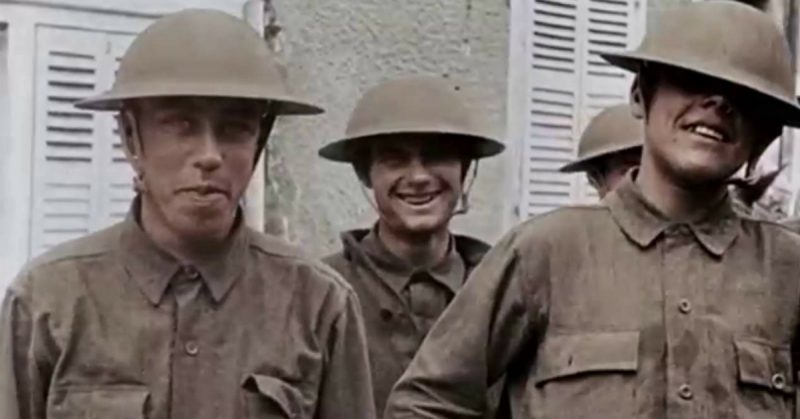During the First and Second World Wars, the defining factions in both conflicts were the Allies and their opponents; the Kaiser and his forces in 1914 – known as the Central Powers – and the Axis Powers in 1939. When thinking about the Allied nations, the United States is perhaps one of the first countries to come to mind, as they played an integral role to winning both wars.
However, the American government was often reluctant to become embroiled in European politics, and during the First World War they initially stayed out of the conflict for the first few years. Originally they had a more isolationist outlook, and believed that the Atlantic Ocean protected the United States from any real risk of foreign invasion.
Unlike the Second World War, this conflict had been, at least to some extent, contained within the European continent, rather than escalating into a full-blown global affair. Although American ships still traded with the British Empire and other Allied nations, it did not seem to be in their best interests to become directly engaged in the war.
Of course, all that was to change in April, 1917.
When the First World War broke out three years earlier – on the 28th of July, 1914 – America was determined to stay neutral. This would allow them to keep up trade and commercial interests with both the Allied countries and the Central Powers, and would also put them at a better vantage point regardless of who eventually won the war.
Even when a German U-boat sank the British liner Lusitania on May 7, 1915, killing 128 American citizens, the United States still refused to get dragged into a battle it did not want to fight.
Germany, however, seemed determined to antagonize this neutral nation even further. The Kaiser and his government were well aware that any American intervention in the war could be catastrophic for the cause of the Central Powers. It was therefor imperative that they defeat the British Empire before the United States decided to get involved.
With this in mind, damaging and blocking British trade became a high priority – if they could starve their enemies into surrender before America changed its mind about staying neutral, the war would be over and Germany would have won.
Ironically, the actions they then took to try and achieve this outcome would ultimately lead to the very thing they wanted to avoid.
Wishing to stop American shipments to the Allies in Europe, a team of German saboteurs blew up the Black Tom Pier in Jersey City, New Jersey, on the 30th of July, 1916. The Canadian Car and Foundry Company’s plant in Lyndhurst, New Jersey, met a similar fate the following year, on the 11th of January.
Americans took to the streets demanding the expulsion of all Germans, including those who were United States citizens. President Woodrow Wilson was still determined to avoid war if at all possible, but only up to a point.
Germany then offered to return New Mexico, Texas, and Arizona to Mexico, if the latter sided with the Central Powers, as outlined in the Zimmerman Telegram. Germany also announced that it would be resuming unrestricted submarine warfare on the 1st of February, 1917. Just 27 days later, the contents of the telegram were leaked to the international press.
Enough was enough – America declared war on Germany on the 6th of April, 1917. The following day, George Michael Cohan (an actor, composer, dancer, lyricist, producer, and playwright) was on a train listening to the song, “Johnny Get Your Gun.” He was thinking about Germany, however, so he took a pen and paper, and in two hours came up with “Over There.”
It was first performed in New York City during a Red Cross benefit and then became a bestseller, moving over two million copies. Americans believed the war would be won quickly, due to their high-quality weaponry and a confidently gung-ho attitude.
They would learn how wrong they were, with terrible consequences, but in the end the American intervention on the side of the Allies turned the tide against the Germans and the Central Powers. In this video, you can watch the brave American soldiers heading off to fight, to the tune of the song Over There.
https://www.youtube.com/watch?v=MlA0PJyl0Eg
